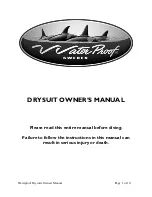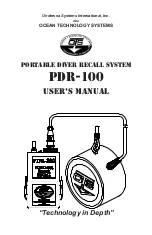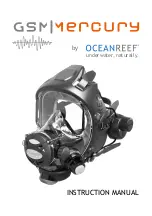
TERMS
PAGE
|
39
Terms
Certain terms are used throughout this manual or on the equipment labels. Please familiarize yourself
with their definitions and significance.
•
Warning: Potential & Imminent hazards which, if not avoided, will result in death or serious injury.
•
Danger: Hazards which, if not avoided, could result in minor or moderate injury.
•
Caution: Potential hazards or unsafe practices which, if not avoided, may result in product
damage.
•
Important Note: Content specific information and or recommendations.
General Hazards
Following are descriptions of general hazards and unsafe practices that could result in death, severe
injury, or product damage. Specific warnings and cautions not appearing in this section are found
throughout the manual.
i401 lasers should be installed and operated in manufacturing or laboratory facilities by trained personnel
only. Due to the considerable risks and hazards associated with the installation and operational use of
any equipment incorporating a laser, the operator must follow product warning labels and instructions to
the user regarding laser safety. To prevent exposure to direct or scattered laser radiation, follow all
safety precautions specified throughout this manual and exercise safe operating practices per ANSI
Z136.1-2014, Safe Use of Lasers always when actively lasing.
Due to the specific properties of laser light, a unique set of safety hazards that differ from other light
sources must be considered. Just like light, lasers can be reflected, refracted, diffracted, or scattered.
A CO2 laser is an intense energy source and will ignite most materials under the proper conditions.
Never operate the laser in the presence of flammable or explosive materials, gases, liquids, or vapors.
Safe operation of the laser requires the use of an external beam block to safely block the beam from
traveling beyond the desired work area. Do not place your body or any combustible object in the path of
the laser beam. Use a water-cooled beam dump or power meter, or similar non-scattering,
noncombustible material as the beam block. Never use organic material or metals as the beam blocker;
organic materials, in general, are apt to combust or melt and metals act as specular reflectors which may
create a serious hazard outside the immediate work area.
Warning: Serious Personal Injury
Never use organic material or metals as a beam blocker. There are very few exceptions, e.g., black
anodized metal such as aluminum because this is non reflective surface.
Warning: Serious Personal Injury
“Caution - The use of controls or adjustments of performance of procedures other than those
specified herein may result in hazardous radiation exposure.”
















































